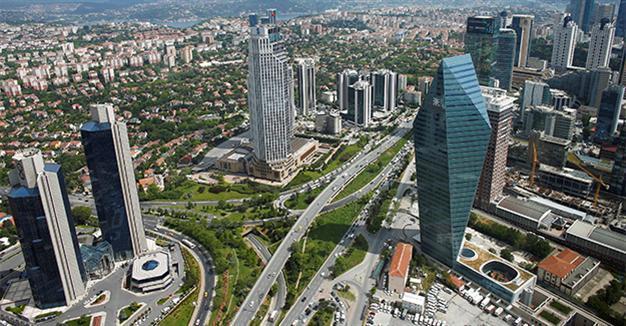Turkish economy grows 4.8 percent in first quarter
ANKARA

REUTERS photo
Turkey’s economy grew a larger-than-expected 4.8 percent in the first quarter of 2016, official data showed on June 10, outperforming major emerging markets peers, as wage hikes and spending by Syrian migrants fueled private consumption, according to analysts.
Domestic demand contributed 6 percent of the growth, data from the Turkish Statistics Institute (TÜİK) showed, but net external demand reduced the overall growth figure by 1.5 percent.
“Its peers, Brazil, Russia and South Africa are mired in recession, or with feeble growth drivers,” Nomura strategist Tim Ash said in emailed comments, as quoted by Reuters, but added: “The structure of growth was less impressive, with private consumption and government spending leading the way, over investment and net exports.”
The year-on-year growth in gross domestic product came in slightly above a Reuters poll forecast of 4.5 percent, prompting the finance and development ministers to say Turkey was clearly on track to meet its goal of 4.5 percent growth this year.
Output grew 0.8 percent in the period on a seasonally and calendar-adjusted basis, TÜİK said.
Finance analyst Haluk Bürümcekçi said the highest contribution to growth came from domestic and government consumption expenditures.
“The contribution of private investment fell to negative territory again, and external demand became the main issue limiting growth. Early indicators have suggested that second-quarter growth performance will be weaker than first-quarter growth,” he added, as quoted by Anadolu Agency.
Deputy Prime Minister Mehmet Şimşek said the figures showed the economy was on a strong path and that the government would push ahead with structural reforms in the coming period.
Şimşek said the Turkish economy was one of the fastest-growing economies in Europe and the Organization for Economic Co-operation and Development (OECD).
“This success was achieved despite geopolitical tensions in our region, problems in our trade partners and weak trend in the global economy,” he said in a statement.
Finance Minister Naci Ağbal said in a statement that those reforms, as well as closer integration with the EU, would help Turkey outperform other emerging markets.
Development Minister Lütfi Elvan said the strong first-quarter growth data showed the government would reach its target of 4.5 percent in annual growth as part of its Medium-Term Program.
“We will do whatever it takes to reach our target. We will speed up the reform process and focus on measures to boost private investment and exports,” he added.
Effect of wage hikes, migrants
According to economists, public sector salary increases and a 30 percent hike in the minimum wage, a pledge made ahead of elections last November and introduced by the ruling Justice and Development Party (AKP) at the start of the year, contributed to the strong first-quarter growth figures.
The more than 2.7 million Syrian refugees sheltering in Turkey also bolstered the numbers, economists said. The migrants, fleeing a civil war that has raged for five years, have bought goods such as refrigerators and cookers, as well as cooking oil, bread, flour and building materials.
“Among the factors triggering domestic demand are the general impact of Syrian migrants on the economy and the AKP’s pre-election promises [on wages],” Oyak Securities chief economist Mehmet Besimoğlu told Reuters.
Turkey raised the minimum wage by 30 percent to 1,300 Turkish Liras ($430) for over 5 million workers at the beginning of the year.
